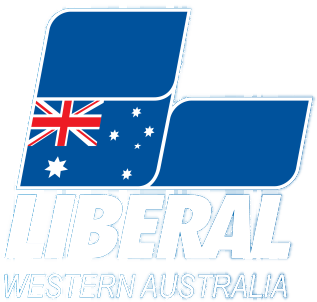Whenever a history of Western Australia is written, you can be certain one word will loom heavy among the pages.
That word is gold.
Before the discovery of this precious metal in the 1890s, WA was a struggling outpost.
The State’s sparse European population, for the most part, toiled thanklessly on the ancient lands they were ill-equipped to live and work on.
Inspired by rumours of vast fortunes, more than 100,000 people migrated to the State in a decade at the end of the 19th century, iconic country towns like Coolgardie and Kalgoorlie exploded into life and the population of Perth tripled.
Gold put WA on the prosperous trajectory it has enjoyed, apart from inevitable fluctuations, ever since.
It’s no surprise the Perth Mint quickly grew in stature and significance to become an icon.
Not only is it a beautiful and distinctively West Australian building that has been in the heart of the city for 120 years, it’s Australia’s official bullion mint and trades with central banks, sovereign wealth funds and private investors globally.
It turns over more than $20 billion annually and employs more than 700 locals.
One other thing.
As the world’s only government-owned precious metals producer, it’s underwritten by you and I – the WA taxpayer.
Given this unique arrangement, anything that affects the Mint affects us too, leaving us in a potentially vulnerable situation.
That is why we should be deeply disturbed that the Mint could be facing fines totalling hundreds of millions, even a billion dollars from AUSTRAC for its failure to comply with anti-money laundering and counterterrorism financing laws.
As has been widely reported, the Mint has also been beset by gold doping issues, which, despite what the chair of the board said last week, has damaged its reputation.
So much so, in fact, that international banks HSBC and JPMorgan stopped buying its gold.
It was obvious that matters at the Mint, especially those concerning regulatory compliance with Commonwealth legislation, required investigation.
That’s why a bipartisan group of colleagues and I established a Senate inquiry into compliance matters at the Mint – made all the more necessary after the minister responsible for the Mint, Bill Johnston, former premier Mark McGowan, and WA Labor used their parliamentary majority to stifle any investigation at State level.
The Senate inquiry held its third public hearing last Friday.
It was the first in Perth, and what we heard should be of concern to all West Australians.
We were told that, despite holding multiple internal audits between 2018 and 2020, the Mint failed to detect the Euro Pacific Bank as a major client.
Multiple media reports have established that this bank was under investigation in five different jurisdictions, including Australia, for its ties to money laundering.
But it was allowed to hold more than $100 million in gold at the Mint.
The head of the Mint’s audit and risk committee insisted he had no regrets over how internal audits had been conducted – despite admitting there were “inconsistencies” in their customer identification requirements – and the fact they failed to identify Euro Pacific Bank as a customer.
Equally troubling was the seeming lack of due diligence shown by the chair of the board, Sam Walsh, who was appointed at the beginning of 2019 by Mark McGowan specifically to improve governance and compliance standards.
It was surprising that, in light of this directive, Mr Walsh failed to familiarise himself with any of the Mint’s biggest international clients.
Here it is worth noting that, according to AUSTRAC’s evidence on Friday, know-your-customer requirements are the “cornerstone” of Australia’s anti-money laundering laws.
AUSTRAC also told the inquiry it was “incredibly important that any reporting entity knows and understands the customer” and has “ongoing due diligence” of their customers.
Mr Johnston also appeared before the inquiry.
He insisted we had accused the Mint of money laundering “without a shred of evidence”.
To be very clear, the inquiry’s focus is on the Mint’s compliance with Commonwealth legislation – with no suggestion at any point the Mint had engaged in this activity.
The reality is that suits Mr Johnson to focus on money laundering as a distraction from the genuine concern, which is that, for a time, the Mint was not in regulatory compliance.
Whenever the State Opposition tried to get a parliamentary inquiry up into the Mint, Mark McGowan and Bill Johnston have dismissed their concerns as irrelevant and baseless.
Mr Johnston said so again last Friday.
But we know from their own actions, in Mark McGowan’s case as far back as 2019, that they held grave concerns over the conduct of the Mint.
Why else did the former premier appoint Mr Walsh to clean up the Mint’s act in the first place?
There’s a word for this kind of behaviour, assuring WA it’s business as usual, and it’s called gaslighting.
That includes shrugging off any shortcomings – past or present.
WA Labor could, and should, hold a parliamentary inquiry into this immediately, as the State Opposition has been calling for.
We owe it to our history, our modern-day gold producers, our international reputation and the hundreds of West Australians it employs, to make sure the Mint is the very best it can be.
Until it does, the Senate inquiry will continue to do its work and ask the questions the Cook Government won’t.
